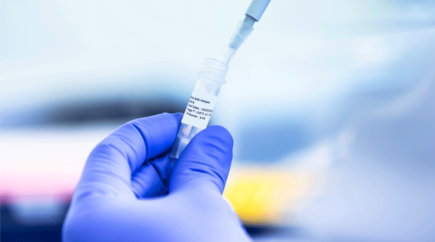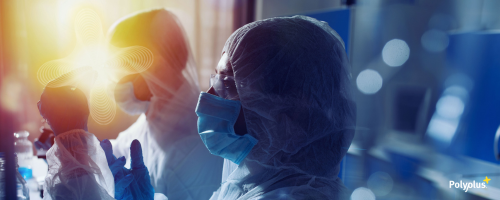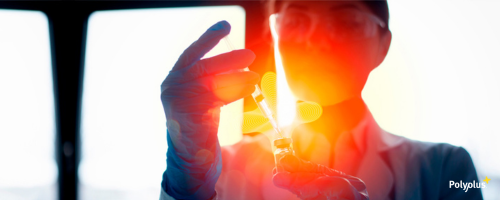pPLUS® AAV-Helper is a novel helper plasmid designed for AAV production. This plasmid has been optimized for triple transfection of HEK293 cells in s...

Meet our team at booth#44 and #46 during the ESGCT 30th Annual Congress 2023 in ESGCT 2023 Brussels, Belgium on October 24th - 27th 2023. Don't miss the opportunity to check our poster presentation on: Next-generation transfection reagent for large scale therapeutic lentivirus production and Novel engineered pHelper plasmid to improve yield and quality of several AAV serotypes in suspension cell culture systems
Lentiviral vectors are the carrier of choice for allogenic or autologous cell therapies (such as CAR T) because of its capacity to permanently integrate viral genome into host cell DNA To produce those vectors, cell therapy producers generally use a transient transfection system that is scaled up during process development phases FectoVIR ® LV is the next generation of transfection reagent, free of animal component, designed to improve LV productivity in HEK 293 cell systems FectoVIR ® LV is made for large scale manufacturing with reduced complexation volume and increased complex stability On top of the performance in titers and the scalability, FectoVIR ® LV is also compatible with standard expression booster such as sodium butyrate These key benefits make FectoVIR ® LV transfection reagent a perfect match for lentiviral vector manufacturing.
Harnessing rAAVs as viral vectors for therapeutic transgene delivery still requires improvements in yields and specificity to lower vector doses, and therefore manufacturing cost, as well as to improve patient safety. To this end, our research is focused on developing novel technologies to ensure manufacturing of high yielding rAAV particles using transient transfection, as well as enhancing features of rAAV vectors that act on the overall size of packaged material and specificity of delivery. Here we present our state-of-the art approach to design new helper plasmids (phelpers) with the aim of improving both the infectiosity (TU/mL) and the quality (full/empty ratio) of the viral particle obtained from suspension cultures. We took the opportunity to exploit our proprietary DNA assembly method technology to explore the synergies of multiple genetic features modularly assembled in synthetic plasmids. Comparison of the biological activity of several versions of rationally designed pHelpers led us to identify the optimal configuration able to outperform existing helper plasmids in every tested bioproduction conditions. Our expertise in DNA plasmid design and assembly together with our scalable transfection solutions for rAAV manufacturing gives us the potential to improve both productivity and specificity of gene therapy products.
We provide:

Success of Gene and Cell Therapies is dependent on efficient production of viral vectors that require optimized transfection reagents and viral vector engineering

RNA/DNA in vivo delivery is the most powerful alternative to viral vectors for nucleic acid-based therapies. They offer substantial advantages in terms of reliability,safety and costs for nucleic-acid based therapies

Broad range of solutions is needed for manufacturing of functional proteins or antibodies at the desired scale in bacteria, yeast and mammalian cell expression systems

Optimised plasmid engineering and specific transfection reagents are key to enable protein expression in a wide range of adherent and suspension mammalian cell types